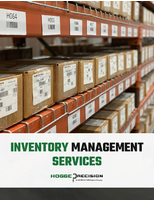ASTM Standard offers framework for testing RFID performance.
Press Release Summary:
Developed by Subcommittee D10.18 on Miscellaneous Packaging, Standard D7435 Test Method for Determining the Performance of Passive RFID Transponders on Loaded Containers allows users to evaluate performance of RFID system, or component thereof, with their specific product and package system. It also enables evaluation of RFID systems from different manufacturers with certain product/package system when in development and decision-making stage of RFID implementation.
Original Press Release:
Radio Frequency Identification Transponders Tested in New ASTM Packaging Standard
W. CONSHOHOCKEN, Pa., 3 December 2008-While the use of radio frequency identification transponders has become common for inventory tracking purposes, RFID system performance can be affected by product and packaging materials. A new ASTM standard can be used to provide a framework for testing RFID system performance that can be applied to, and compared across, all RFID manufacturer systems in any industrial application that involves a unit case load or palletized load. The new standard, D7435, Test Method for Determining the Performance of Passive Radio Frequency Identification (RFID) Transponders on Loaded Containers, has been developed by Subcommittee D10.18 on Miscellaneous Packaging, part of ASTM International Committee D10 on Packaging.
According to Robb Clarke, Associate Professor, Michigan State University School of Packaging, and D10 member, it is crucial when relying on an RFID system for data capture that the functionality of the system be verified prior to its use. "ASTM D7435 allows users to evaluate the performance of an RFID system, or a component thereof, with their specific product and package system in a standardized method that will allow for comparability of RFID systems from all manufacturers," says Clarke. This results in two distinctly useful applications of the standard: it allows users to verify that a given product/package system will work within an existing RFID infrastructure and it allows for the evaluation of RFID systems from different manufacturers with a certain product/package system when in the development and decision-making stage of an RFID implementation.
Clarke notes that likely users of ASTM D7435 are companies and research groups that are evaluating the performance of RFID systems in relation to specific product and package combinations. "Users may be seeking to verify that a new product will work with an existing system or to gather information about which RFID system can provide a solution for a specific need," says Clarke.
Interested parties are invited to participate in the ongoing development of RFID-related standards by D10.18. Currently in the works are proposed standards for testing system performance in RFID-enabled stretch wrapper and portal (or dock door) scenarios.
Beyond these proposed new standards, there are plans to introduce RFID testing procedures specific to the pharmaceutical, biologics and medical device industry. "We would very much like input from companies that could be affected by these plans," says Clarke. "Also, formal test procedures on tag reading fields and tag writing fields should be established."
ASTM International standards are available from Customer Service (phone: 610-832-9585; service@astm.org) or at www.astm.org. For technical Information, contact Robb Clarke, Michigan State University School of Packaging, Lansing, Mich. (phone: 517-999-7125; clarker@msu.edu). Committee D10 meets April 20-22, 2009, during the April committee week in Vancouver, B.C., Canada. For ASTM meeting or membership information, contact Kevin Shanahan, ASTM International (phone: 610-832-9737; kshanaha@astm.org).
Established in 1898, ASTM International is one of the largest international standards development and delivery systems in the world. ASTM International meets the World Trade Organization (WTO) principles for the development of international standards: coherence, consensus, development dimension, effectiveness, impartiality, openness, relevance and transparency. ASTM standards are accepted and used in research and development, product testing, quality systems and commercial transactions around the globe.




